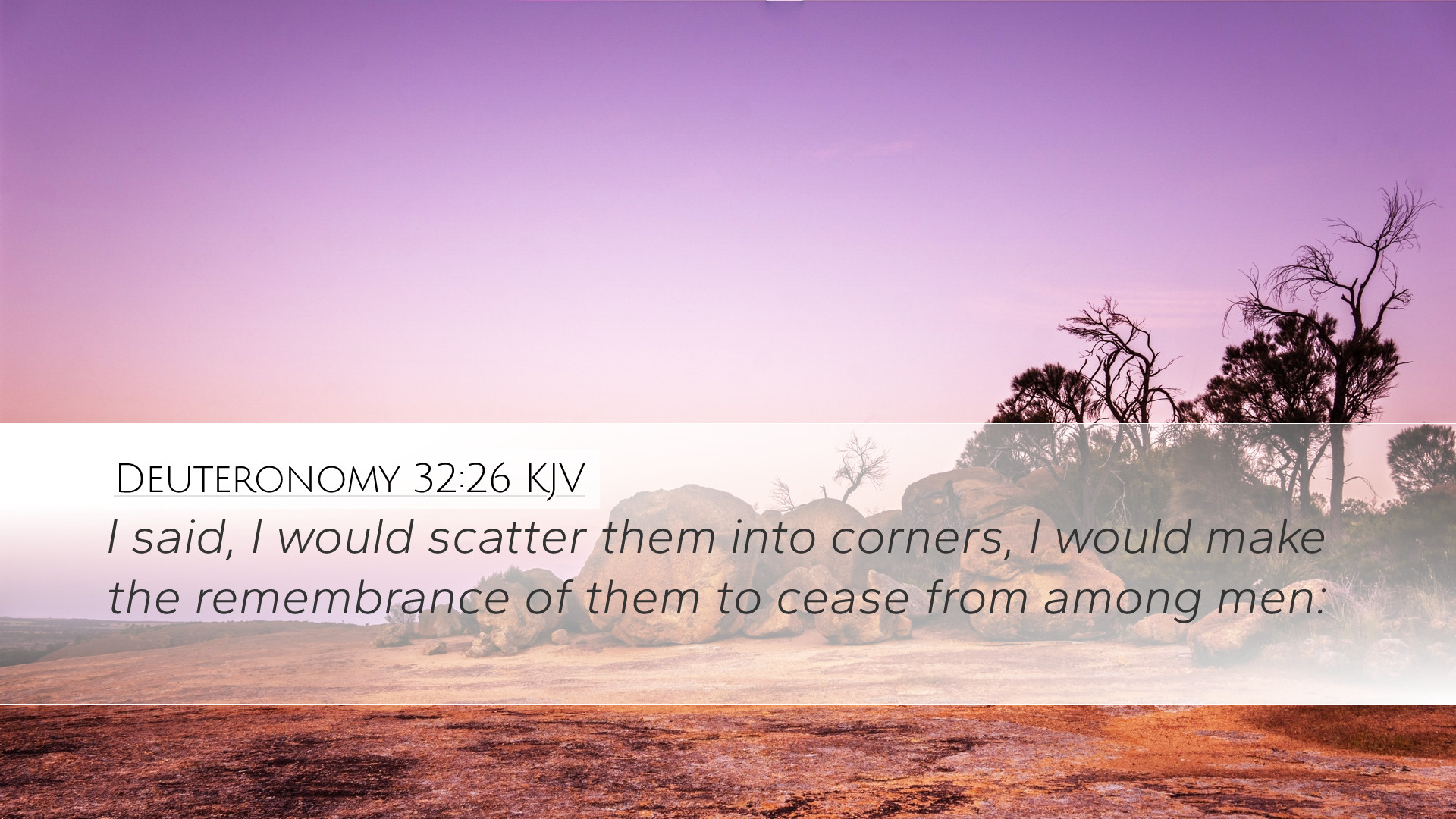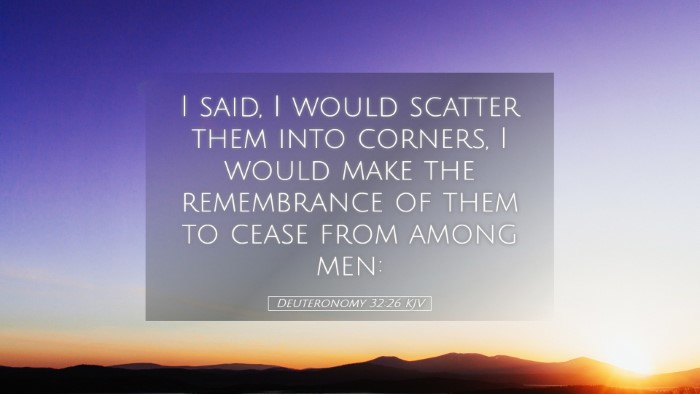Commentary on Deuteronomy 32:26
The verse Deuteronomy 32:26 states: "I said, I would scatter them into corners, I would make the remembrance of them to cease from among men." This verse is part of the Song of Moses, a poetic reflection that conveys both the history and impending future of Israel. This commentary aims to provide insights from various public domain commentaries, including those by Matthew Henry, Albert Barnes, and Adam Clarke.
Contextual Background
Deuteronomy 32 is a powerful chapter where Moses outlines God’s faithfulness, the unfaithfulness of Israel, and the consequences of their sin. The song serves as both a warning and a reminder of God’s sovereignty and the Israelite nation's covenant relationship with Him.
Verse Analysis
1. Divine Retribution:
The phrase "I said, I would scatter them" reflects God’s pronouncement regarding the judgment that would befall Israel as a result of their disobedience. Matthew Henry notes that God’s heavy hand would lead to the scattering of His people among the nations. This scattering is often seen as a metaphor for exile and punishment due to rebellion against God's commands.
2. The Purpose of Scattering:
The purpose behind this scattering is multi-faceted. It serves as a means of correction with the intent to bring Israel back to repentance. Albert Barnes emphasizes that the remembrance of the people would cease, signifying a loss of identity and community due to their own actions. This potential anonymity stresses the seriousness of turning away from God.
3. Theological Implications:
Adam Clarke points out that this verse reflects God's justice and holiness. The desire to make "the remembrance of them to cease" serves as a stern warning of what divine judgment entails. It illustrates God's purpose behind suffering and separation: a call to repentance and a chance for restoration. The idea of forgetting the people also warns of the consequences of infidelity to God’s covenant.
Historical Insights
Throughout Israel's history, instances of scattering have been prevalent. From the Babylonian exile to the Assyrian conquests, the people of Israel have experienced the physical and spiritual distance from their homeland and God. This scattering has always been intricately linked with their turning away from God, as noted by various commentators.
Reflective Considerations for Pastors and Theologians
1. Preaching on Judgment:
This verse provides a unique opportunity for pastors to preach on the themes of judgment, repentance, and grace. The stark reality of God’s potential judgment should be presented alongside the hope of redemption and restoration. It poses a question of how communities engage in faithfulness to their covenant with God.
2. The Role of Memory in Scripture:
For students and scholars, this passage necessitates an examination of how memory functions within the covenant community. The concept of remembrance is pivotal, as it ties in not just personal identity but collective national identity rooted in the divine promise. Understanding how memory supports faithfulness can provide insights into contemporary worship practices.
Practical Applications
- Encourage Repentance: This verse signifies the importance of repentance. Modern congregations can reflect on what it means to return to God after periods of disobedience.
- Community Identity: Leaders should foster a strong community identity, rooted in collective remembrance of God’s works and faithfulness to prevent a scattering of faith.
- Intercessory Prayer: Deuteronomy 32:26 can be a prompt for intercessory prayer, recognizing the dangers of forgetting God’s ways and leading congregations to pray for the restoration of those who have wandered from the faith.
Conclusion
Deuteronomy 32:26 serves as a haunting reminder of the consequences of disobedience against God and the importance of faithfulness in the covenant relationship. Insights from historical and theological perspectives are vital in enriching our understanding of this scripture. For pastors, students, and theologians alike, these reflections foster a deeper contemplation of God's holiness and justice, while also highlighting His grace and willingness to restore.


